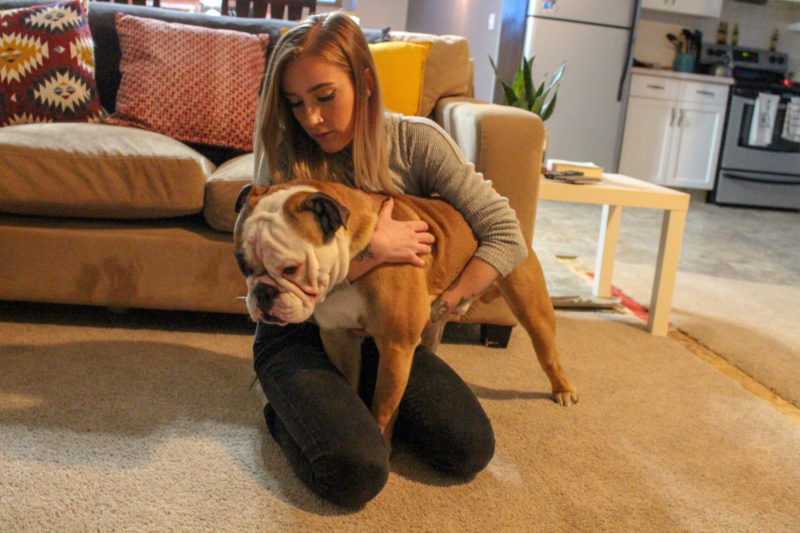Miranda Payne, Lethbridge resident, has been battling a mental illness for a long period of time. But only accepted her condition in 2015.
Imagine you’re in a lake with a beach ball blown up and you try to push the ball under the water.
No matter how far you push it, it will still come back up.
This is how a Lethbridge resident describes her battle with depression and anxiety.
According to the Canadian Mental Health Association, 10.4 per cent of Canadians are currently living with a mental illness.
From assisting in mental health recovery to battling her own mental health challenges, 24-year-old, Miranda Payne, has been struggling most of her life.
But Payne finally accepted her situation and came to grips with it in 2015.
“Basically, I probably always had mental issues growing up, but I didn’t start realizing it until probably like 2015-2016, when things started to hit rock bottom for me.”
When it got overwhelming for her, she was in university. She says she was working too much and developed an agoraphobia which is the fear of leaving the house.
This is where she just shut down.
“I would rather die than leave my house. I was calling in sick for work, cancelling on friends by making excuses and lying. It was just like a big beach ball blown up with air and [I] was trying to push it under water, but like no matter how much you push it down, it pops back up.”
Payne sought medical help and tested positive for mental illness. It was a hard pill to swallow.
“For me, having to be that person whose vulnerable, I felt weak at that point because I couldn’t manage my own [day-to-day life]. I had to resort to a pharmaceutical method because my brain chemicals were all unbalanced.”
Payne explains with her degree in Psychology she understands why she had to attend therapy and take medication. But she didn’t want to.
Harmoni Jones, Lethbridge College health promotions coordinator, says just accepting you have a mental illness can be the first step to recovery.
“A diagnosis brings them a lot of relief because it’s finally an answer to how they have been feeling or what they have been going through.”
Payne said her doctor gave her no choice, but to take medication to help with her illness since her serotonin levels were pretty low.
According to Everyday Health, “serotonin is known as the happy chemical, because it appears to play an important role in regulating mood.”
When she started taking medication in 2016, Payne “felt like a zombie” where her pupils were always dilated and she just felt strange.
After being on medication for a while, she started to gain 25 pounds in two and a half months.
In 2017, she graduated from the University of Lethbridge on the Dean’s List with a Psychology Degree.
Graduating with honours was her number one priority and was a significant feat for her because of everything she’d been going through.
Payne says a support group was key in her recovery.
“Developing a support group is really, really, really important and I see that with my clients as well as in myself. If you have a strong support group, recovery is possible.
Currently, Payne attends Lethbridge College where she takes pre-requisite courses for the post-degree nursing program.


One response to “Lethbridge College student speaks out about growing issue worldwide”
An informative and fair treatment of mental health problems experienced by many. It is a strong message to everyone that, as she says, “Recovery is possible.” There is hope. Well done!